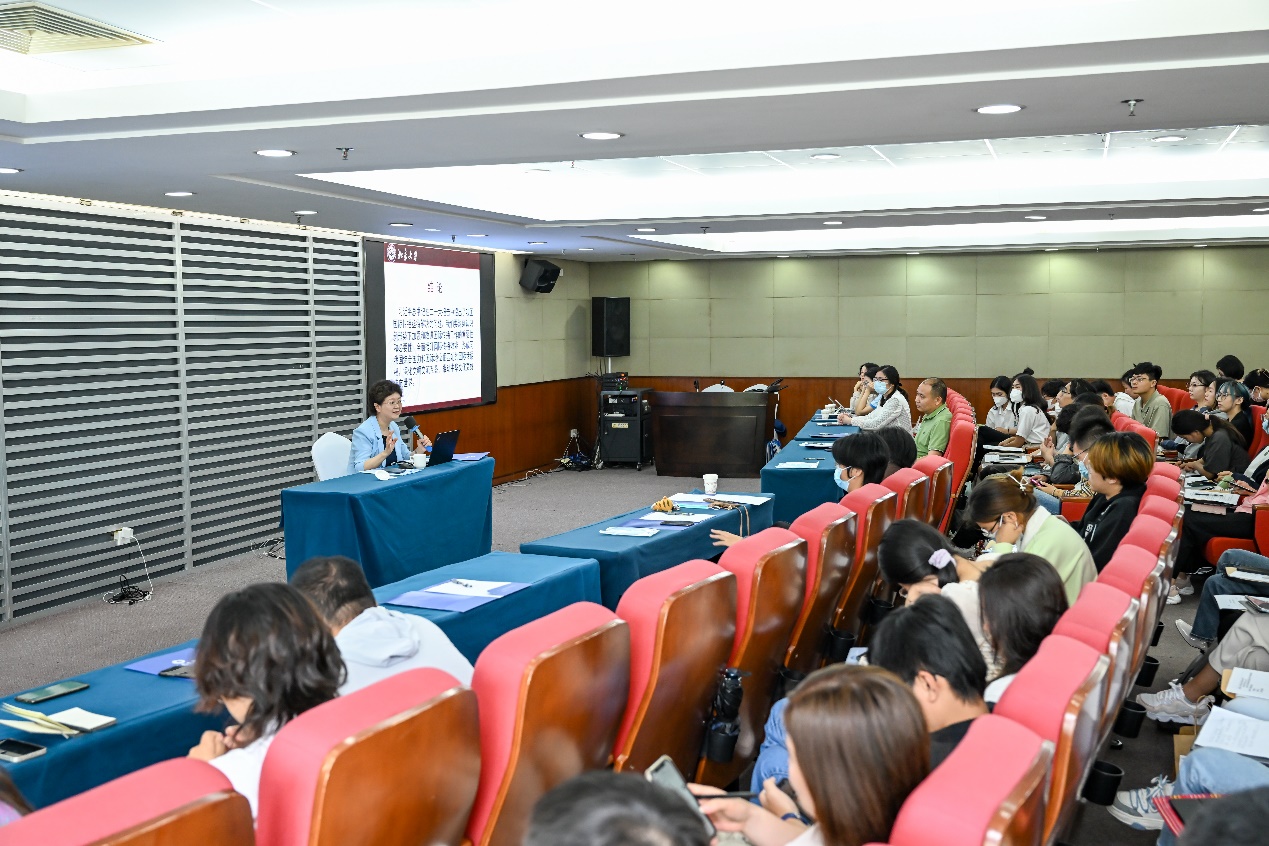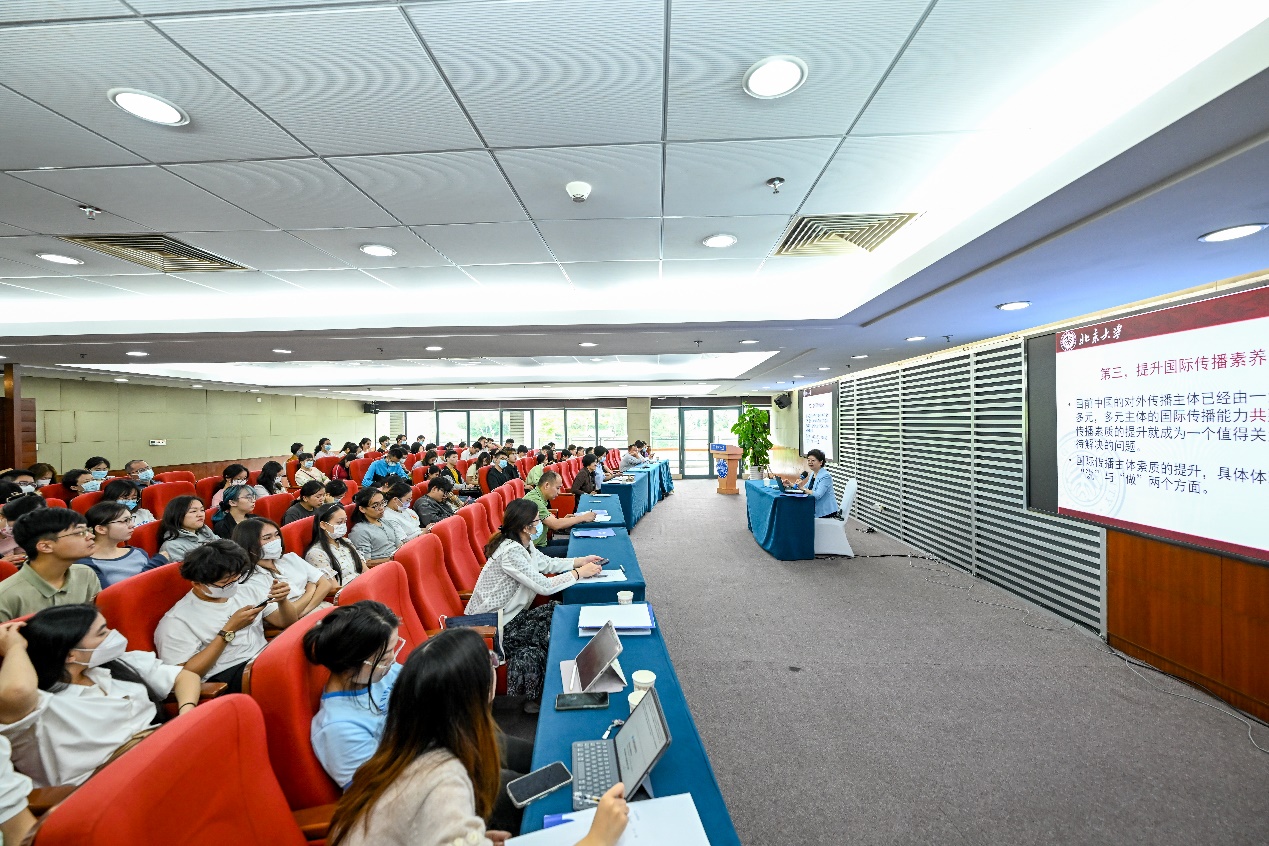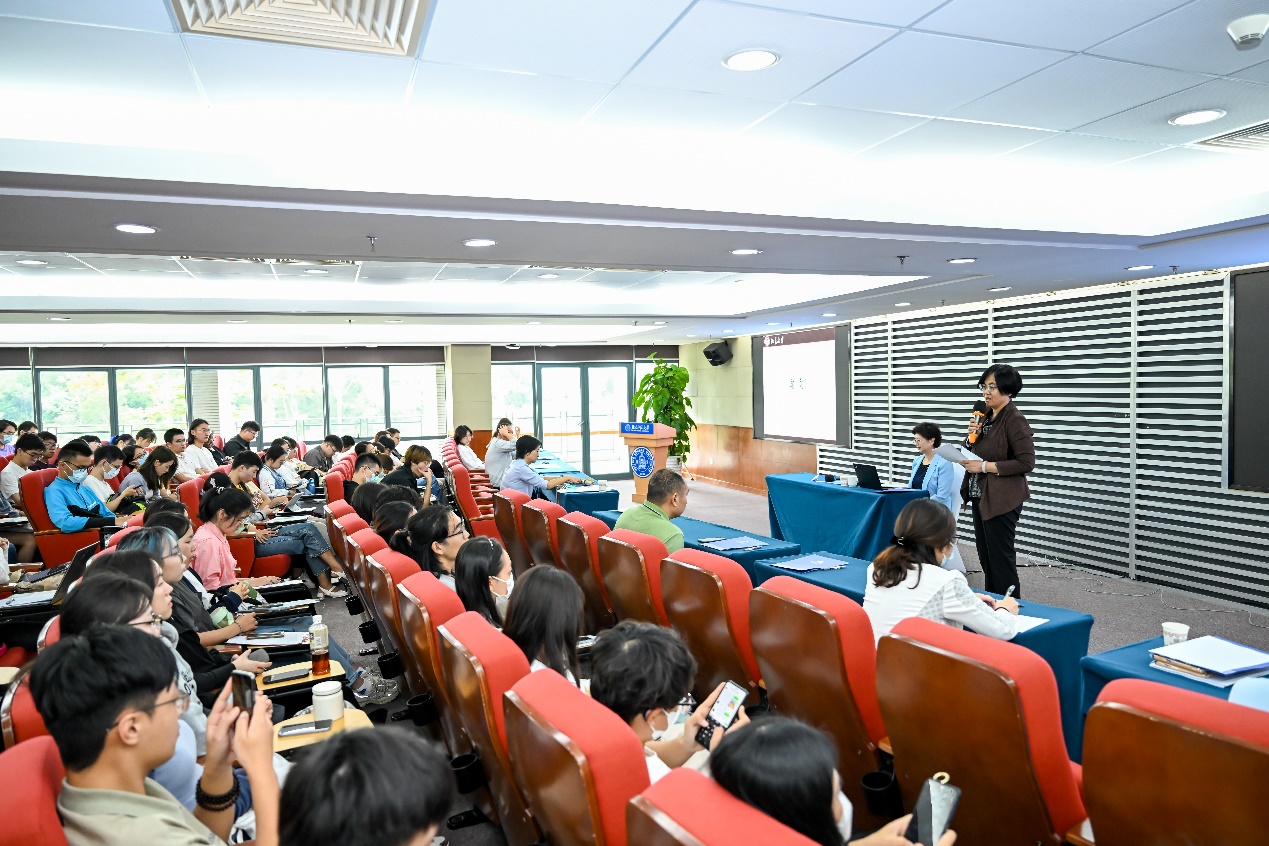
On May 13th, 2023, the fifth lecture of the Phoenix Lecture Series and the 136th lecture of "Circumstance and Policy," was successfully held in the lecture hall on the second floor of the International Exchange Center. This lecture was jointly organized by Phoenix School of Beijing Normal University at Zhuhai (BNU Zhuhai), The Institute of Advanced Studies in Humanities and Social Sciences of BNU, and the Student Affairs Office of the Party Committee of BNU Zhuhai. The lecture was held both online and offline simultaneously.
Review of the lecture
The lecture was themed around "Building China's International Communication Capacity under New Circumstances," with Professor Cheng Manli as the guest speaker. Professor Cheng Manli is a professor and doctoral supervisor at School of Journalism & Communication, Peking University, dean of the Institute of International Communication, a distinguished professor at Minzu University of China, the honorary president of the Chinese Association for History of Journalism and Mass Communication, the executive president of the Institute of Journalism, Peking University, and the chief expert of major projects funded by the National Social Science Fund. Her research areas mainly cover the history of journalism and communication, international communication, and overseas Chinese media.
Professor Cheng first explained the meaning of the "New Circumstances" from the perspective of global development and global governance. The first part of the lecture focused on the launching and building process of China's international communication capacity. By giving numerous detailed examples, Professor Cheng talked about how the central government has provided staunch support to key media outlets in terms of policy environment and funding since the launch of the International Communication Capacity Building Project in 2009, thus helping various media outlets to spread information about China to the world. At the same time, she pointed out that Western discourse continues to dominate the international public opinion arena, and in comparison, there is still a huge gap in the ability to take the reins of the discourse between Chinese media and Western ones. Thus, improving the awareness and ability to clarify and explain China to the world is an urgent task in building the capacity for communication.

In the second part of the lecture, Professor Cheng analyzed the current international public opinion environment facing China and pointed out that the historically inevitable intertwined development of the world’s two major patterns, the consistency of interests between the United States and its Western allies, and the long-term impact of the US on global public opinions on China, are the factors affecting the current situation.
Furthermore, Professor Cheng shared her insights on the international communication capacity building in China under the new circumstances. Firstly, she emphasized the importance of gaining control of the discourse through consistent efforts. Secondly, it is necessary to change from a passive to an active stance, break through traditional mindsets, and strive for a more dominant role and discourse advantages. Thirdly, it is important to improve the quality of international communicators and to build multiple subjects’ international communication capacity on by empowering the correspondents to be more expressive and capable of taking actions.

Finally, to summarize the lecture, Professor Cheng emphasized the significance and necessity of strengthening and improving international communication work under the new circumstances. She stressed the need to comprehensively improve the effectiveness of international communication, develop a voice in international discourse that matches with China's comprehensive national strength and international status, deepen the exchange and mutual appreciation of different civilizations, and promote Chinese culture to better integrate into the world.

Chen Xi, Director of International Education Affairs of BNU Zhuhai and Dean of Phoenix School, presided over the lecture and gave a concluding speech. She pointed out that Professor Cheng’s wonderful lecture helped the students understand the development strategies and policies of the country in different periods, broadened their horizons, and expanded their thinking. The lecture, with rich and detailed contents, inspired the audience to think deeply with multiple real instances happening around us, and encouraged everyone to improve their international communication literacy and build their diversified communication ability.

This lecture was also part of Phoenix School 's series of academic activities aimed at promoting the internationalization level of BNU Zhuhai. So far, Phoenix Lecture Series has successfully held five lectures. To help teachers and students at BNU Zhuhai obtain cutting-edge knowledge in their academic fields, broaden their horizons, inspire innovative thinking, explore academic interests, enhance academic literacy, optimize knowledge structure, and improve overall qualities, Phoenix School regularly invites renowned experts and scholars from home and abroad in the fields of international education, traditional culture research, and interdisciplinary studies to give special lectures.
Translator: Yang Anqi
Proofreading: Martin Wittenberg